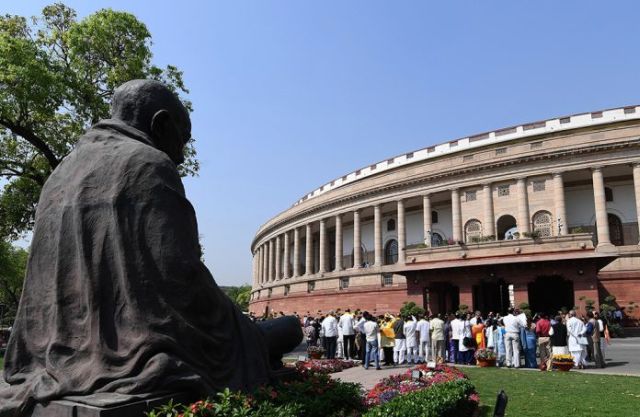
India can be a global beacon for democracy
In this 21st century, democracy is descending and autocracy is ascending in countries around the world. That is the conclusion and argument that Yascha Mounk and Roberto Stefan Foa present in their article titled “The End of the Democratic Century” published in the May/June edition of Foreign Affairs.
For much of the 20th century, the United States was the leader in promoting and promulgating democracy and democratic values internationally. With the Trump presidency that leadership has eroded and virtually disappeared.
The obsessive emphasis on “America First” and the withdrawal from involvement with allies and international agreements combined with the instigation of trade wars will only lead to the inevitable conclusion of America being alone and last. A nation cannot lead from that position.
There is a significant vacuum that must be filled if democracy and the search for it is to be a defining characteristic of this century. India is by far the largest democracy in the world. In the upcoming national election to be held sometime in 2019, over 900 million Indian citizens will be eligible to vote. This compares to a mere 245 million-plus eligible voters the next largest democracy – the US.
The question becomes can India step forward and begin to fill that vacuum by leading by example and speaking out on issues central to democratic values and practices? There are some indicators that suggest that India may not be up to this task.
A Pew Research Center survey of citizens in 38 nations, conducted in 2017, found that “support for a strong leader who is unchecked by the judiciary or parliament is highest in India;” 55 percent of those surveyed saw “rule by a strong leader as a good way to govern”. That same survey disclosed that only 8 percent of the respondents were fully committed to a representative democracy, 67 percent were less committed, 9 percent preferred a non-democratic option, and the remainder were uncertain.
Mounk and Foa in their article did not see India playing a more active role in the democratic arena. They cited a number of reasons including: defending liberal democracy has not been a significant component of India’s foreign policy; India’s abstaining from voting on the UN resolution condemning Russia’s annexation of Crimea; and India’s siding with autocratic regimes in seeking a greater role for the state in regulating the internet.
That’s the bad news for India’s potential future role as a champion of democracy. The good news is there are some strong counter-indicators. Two that standout are the manner in which the Indian democracy was founded and the nature of and participation in the 2014 national election.
Ornit Shani, a scholar at the University of Haifa, has written a new book, “How India Became Democratic: Citizenship and Making the Universal Franchise” detailing how India was established at the outset as a country empowering its diverse population as voters. In her review of the book for The Hindu, Mini Kapoor notes that because the draft electoral roll was established after Independence but before there was a Constitution, Shani makes the “grand claim that Indians became voters before they were citizens”. Given the differing opinions and conditions at the time of the country’s founding, this expansive democratic action could almost be characterised as miraculous.
While the nature of and participation in the 2014 national elections was not miraculous, it could definitely be labeled a big deal – a very big deal. Consider the following: The registration for this election was more than 100 million voters higher than the 2009 election – an increase of almost 15 percent. The elections were held over nine days. The election process required approximately 1.1 million government workers and 5.5 million civilian employees to help voters at 1.4 million voting machines in 930,00 polling stations. The voter turnout of over 66 per cent was the highest in the history of India’s national elections.
Given these and other factors such as its re-accelerating economic development, I believe India is poised to move centrestage as an exemplar of and worldwide advocate for democracy. I say this recognizing that India as a nation and democracy is far from perfect. It has numerous problems that need to be addressed in order to don the mantle of a democratic leader.
In my opinion, there are three key areas in which India needs to take action in order to assume that leadership role:
* Pursue an intensified agenda of inclusiveness and economic equality and opportunity for all
* Provide effective civic education for students – especially in the younger years
*Ensure the free press is completely free
The old saying goes, it is always darkest before the dawn. For the past few years, democracy in countries and around the world has been slipping into darkness. In recent months, things have continued to get darker for democracy. We are moving toward the darkest hour.
India has the potential to confront that hour by becoming a global beacon of hope for democracy. If it realises that potential, it will help to bring about a new dawn for democracy in this 21st century.
(Frank F. Islam is an entrepreneur, civic and thought Leader based in Washington DC. The views expressed are personal. He can be contacted at ffislam@verizon.net)
—IANS
